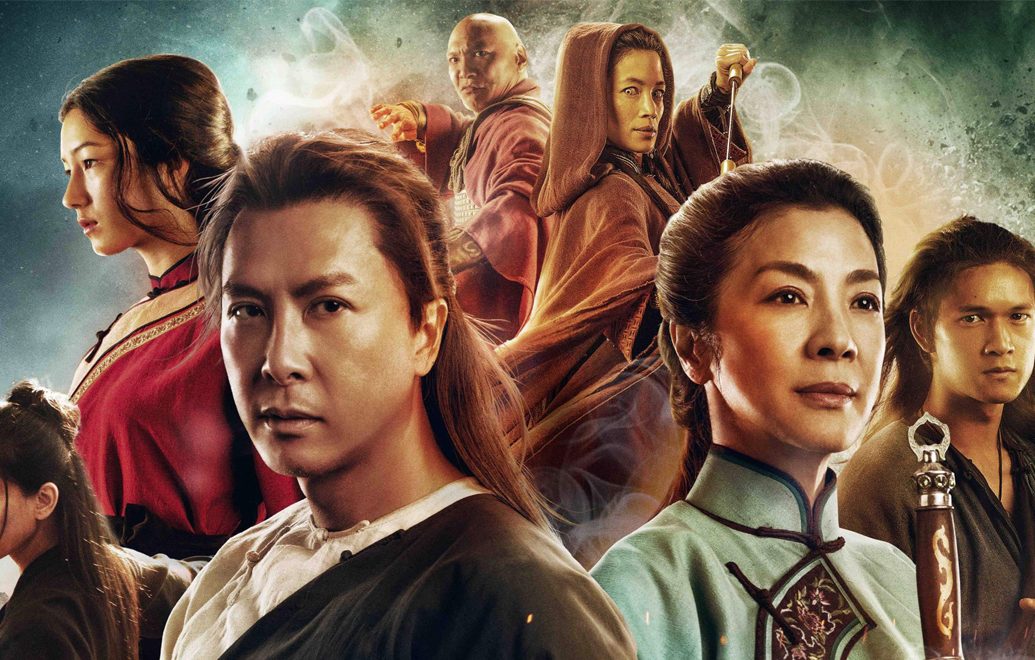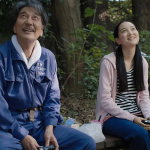To me, Crouching Tiger, Hidden Dragon captures the elusive interplay of illusion and reality in human life. There’s no clear good or evil, right or wrong—people act driven by gratitude and grudges, love and loyalty.
Li Mu Bai and Yu Shu Lien
Li Mu Bai, the unrivaled master of the Wudang sect, wields the invincible Green Destiny sword. Having reached the pinnacle of swordsmanship, he no longer wishes to carry a blade or its burdens. He seeks a quiet retreat, but his unresolved “anger” (vengeance for his master) and “attachment” (lingering feelings for Yu Shu Lien) keep him tethered, unable to attain true peace.
I sense Li Mu Bai isn’t truly troubled when he hears the Green Destiny is lost. For him, the sword—a companion through life and death—knows only survival, not liberation from inner turmoil. Holding a prized blade that hasn’t pierced his enemy or severed his unspoken love makes it a weight he wants to shed. Perhaps in handing over the Green Destiny, he briefly hopes to release his hatred and longing. But life isn’t that simple.
Li Mu Bai’s presence radiates solitude. This might be the truest image of a martial arts master: unmatched skill breeds a reputation for coldness and a life that feels meaningless. Yet I admire his chivalrous spirit—sacrificing himself to save Jade Fox’s disciple, Ngoc Kieu Long, and boldly confessing his love to Yu Shu Lien with his dying breath. In that moment, he sheds the burden of being the greatest, laying down his sword to enter eternity.
Watching Li Mu Bai’s death devastates Yu Shu Lien. A sharp, honorable heroine, her romantic fate is bleak: unable to reunite with her late betrothed or unite with Li Mu Bai, her sworn brother, despite his living presence.
A woman roaming the martial world seems denied the full joy of being a wife or mother. Yu Shu Lien embodies resilience yet resignation, decisiveness yet uncertainty. She’s a calm lake with turbulent waves beneath.
That resilience captivates Ngoc Kieu Long, who dreams of becoming a heroine like her.
Ngoc Kieu Long and Lo Tieu Ho
Unlike Li Mu Bai and Yu Shu Lien, who temper emotions with willpower, Ngoc Kieu Long and Lo Tieu Ho—young and fiery—live fully in their feelings. This generational contrast, these two ways of being, is what makes Crouching Tiger, Hidden Dragon stand out.
The martial world isn’t just heroes, heroines, villains, or temptresses neatly divided into black and white, swinging blades like killing machines. They’re people with rich inner lives, yearning to live or die for what they believe. The film is fiction, but their thoughts and actions offer real-world reflections.
Ngoc Kieu Long and Lo Tieu Ho chase personal happiness. They know what they want, act fiercely to seize it, and boldly shatter traditions and norms. Their youthful freedom breathes life into the bleak order of a feudal system. But their time hasn’t come.
After breaking everything, Ngoc Kieu Long can’t fulfill her wish to wield the Green Destiny and roam the江湖 (jianghu). Lo Tieu Ho can’t realize his dream of returning to the desert with her. They taste fleeting joy and liberation, but they can’t accept what Li Mu Bai and Yu Shu Lien do, however painfully: the constraints of time and circumstance.
The era of freedom hasn’t arrived. Choosing liberty—and sacrificing so much for it—leaves these young lovers lost once they grasp it. In the end, the pragmatic Ngoc Kieu Long clings to legend, leaping off a cliff, while Lo Tieu Ho remains behind, alone.
The Green Destiny Sword
The film’s dynamics aren’t a straightforward “dragon-tiger clash”—the difference lies in the Green Destiny. I see this sword as a symbol of status and power in the martial world. Typically, weapons aren’t fearsome; their wielders are. But here, the Green Destiny itself inspires dread. Its sharpness, strength, and coldness make it a perfect tool for slaughter.
Its allure awakens the “crouching tiger, hidden dragon,” igniting a “dragon-tiger struggle.” Contention, hierarchy, and bloodlust define this treasured blade. Li Mu Bai recognizes this and wants to abandon it, hoping to quell some of the chaos. But for young talents like Ngoc Kieu Long, it’s a prize worth dying for.
That’s the way of the江湖— the sword merely stirs and reveals their natures. The seasoned seek to let go; the newcomers crave to possess. Those grasping for it focus only on desire, rarely asking if they’re worthy or capable of holding such a thing.
The tragedy of Bich Nhan Ho Ly (Jade Fox) stems from this too. She schemes tirelessly, sacrificing her youth and murdering Li Mu Bai’s master to steal a secret manual. She pays dearly for it, yet her limited aptitude keeps her from mastering it. Wanting what she shouldn’t, and having it but not knowing how to use it, is a sad, regrettable error—one I see often beyond the screen.
Is crafting a fine sword good or bad?
Should we nurture ambition into talent?
Can one easily wash their hands after laying down the blade?
I’ll borrow Lao Tzu’s words to close: “Those who know don’t speak; those who speak don’t know.” I believe Ang Lee’s Crouching Tiger, Hidden Dragon and its cast deserve their Oscar. It’s not just entertainment or overblown martial arts fantasy—it’s a meditation on lives bound by love and ambition. But without those ties, would we still be human?















